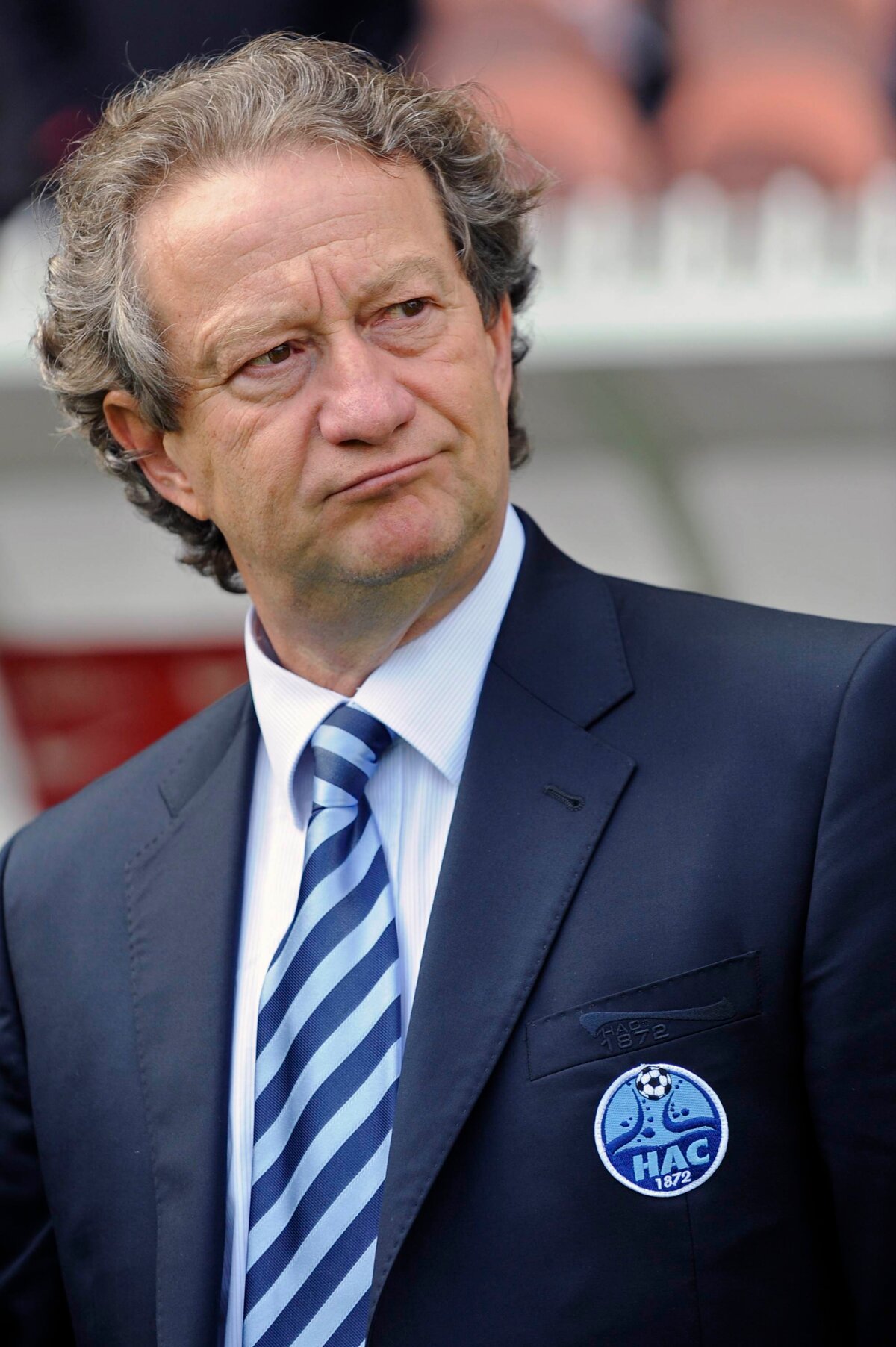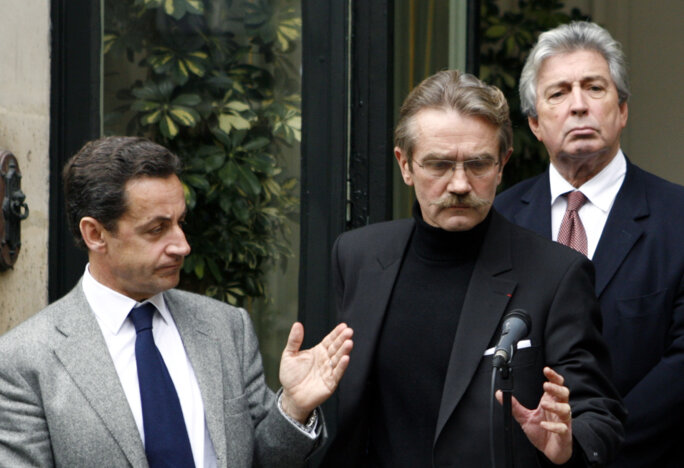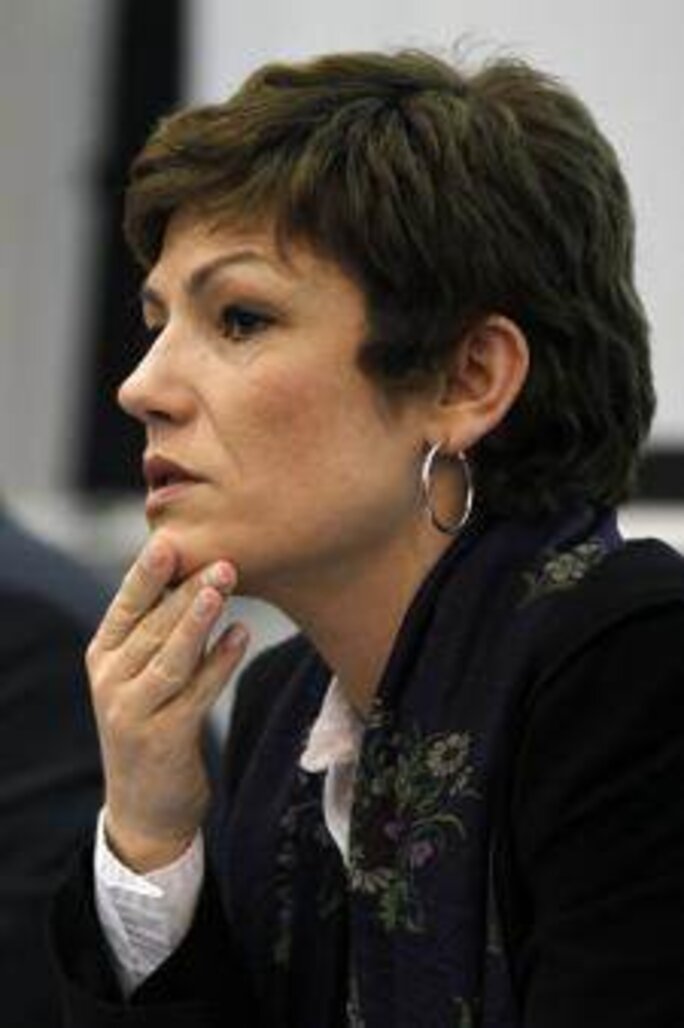The application of ethnic quotas among players in professional French football clubs is widespread and “to deny it would be absurd”, according to the chairman of France’s Union of Professional Football Clubs, the UCPF.
In an interview with Mediapart, Jean-Pierre Louvel, whose organisation represents 45 French clubs, has confirmed and expanded upon comments he made to RMC radio journalist Daniel Riolo and which appear in a recently-published book by Riolo, Racaille Football Club (1).

Enlargement : Illustration 1

“If you have in a club 60%, even 80%, of players who are of African origin, it’s not a bad thing in itself, but that signifies putting aside people who are not of their culture,” Louvel told Mediapart. “The social life of the club is no longer the same.” During the interview, the UCPF chairman also referred to problems caused by “the human relations of Africans”.
French sports minister Valérie Fourneyron on Tuesday described Louvel’s comments as being “of another age”.
“I’m asking the French Professional Football League and the French Football Federation to inform me of the conclusions they make of his comments, which are unambiguously [potentially] punishable by law,” she told Mediapart. “These bodies must give me an answer.”
The controversy follows revelations by Mediapart in April 2011 of an attempt by leading members of the French Football Federation, the FFF, to establish ethnic quotas on teenagers entering national training academies. Mediapart published the transcription of a closed-door meeting of the FFF’s National Technical Board (DTN), when several of those present, including then-France national team coach Laurent Blanc, argued for an ethnic filter on new recruits.
In Riolo’s book, which dresses a portrait of French football today, Louvel tells the author: “Let’s stop being hypocrites, and not one [club] chairman would dare say the opposite, this story about quotas, it’s nothing compared to the reality.”
“We all look closely at who comes into our clubs today. All the clubs apply doses and so, in a way, quotas; not too much of this or that […] the tacit quota exists. To deny it would be absurd.”
Contacted by Mediapart, the president of the French football league, Frédéric Thiriez, refused to comment on the claims. Also contacted by Mediapart, the chairman of the French Football Federation, the FFF, Noël Le Graët, speaking before the sports minister’s reaction on Tuesday, said he “couldn’t give a damn” about the issue.
Following Mediapart’s revelations in 2011 of the discussions on ethnic quotas at the FFF's technical board, the DTN, its director, François Blaquart, who argued for a discriminatory policy at training centres, was suspended from his post only to be reinstated later. Laurent Blanc, who was forced to make a public apology for his statements behind closed doors after first denying he had made them (see video below), remained in his job as France coach until 2012.
The then-sports minister, Chantal Jouanno, had described the comments made at the FFF meeting as being “at the limit of a drift towards racism”. In his report commissioned by the FFF into the 2011 scandal, French Member of Parliament Patrick Braouezec clearly condemned the notion that “children of 12 years of age, French, could see themselves refused entry into the national training centres for reasons of a double form [ethnic origin and physical appearance] of discrimination”.
Louvel, however, apparently has few, if any, qualms about the application of quotas. Questioned by Mediapart, he confirmed and reiterated what he told Riolo. “Yes, there are discussions in clubs all the time during which there can be extreme positions [expressed]. I don’t see where the problem is. If you have in a club 60%, even 80%, of players who are of African origin, it’s not a bad thing in itself, but that signifies putting aside people who are not of their culture. The social life of the club is no longer the same.”
Asked to explain what he meant, Louvel spoke of a problem of “chants”, and “the human relations of Africans”, explaining that “there are, for example, players who come from dominant tribes and, as a result, it is they who decide and not the others.”
“And don’t let anyone call me racist – my daughter in law is Cameroonian,” he added.
On the subject of North Africans, Louvel referred to players’ interpretations of the observance of the Muslim once-yearly fast during the Ramadan, when adult Muslims are required to not eat food between dawn and sunset. “The Ramadan is a problem for all the top-level teams,” said Louvel. “There are some Muslim players who say, for example, that for them football is like a combat or a war, and that their religion authorises them to eat while engaged in a combat during the Ramadan. Others will tell you that’s not the case.”

In his book, Riolo writes that the French football club Stade Rennais, normally referred to as Rennes and which plays in the top French football division, called Ligue 1 (equivalent to the English Premier League), “was pleased to see the majority of its Muslim players leave during the summer of 2012”, adding: “The number is since limited.”
Riolo also refers to another Ligue 1 side, AS Saint-Etienne, historically one of the most successful French clubs. “At Saint-Etienne,” he writes, “the coach has given the order. He wants no more African players and remains vigilant on [the question of] South American players.”
Despite several phone calls from Mediapart, no-one at the Stade Rennais was prepared to deny it had a discriminatory policy towards Muslim players. Mediapart was told that neither Saint-Etienne manager Christophe Galtier nor the club “wished to comment” on Riolo’s allegations. Riolo has said he is certain of the veracity of his information.
Jean-Pierre Louvel told Mediapart he had “no knowledge” of the alleged discrimination at the two clubs: “It’s true that Rennes had for a long time a policy of recruiting large-sized [players] and perhaps that at one point they wanted to recruit other [physical] builds,” he said. “But I never heard talk of a link to [ethnic] origin.”
In the furore that followed Mediapart’s revelations in 2011 of the race quota discussions at the FFF, one of the arguments put forward to defend the discrimination was the physical build of players. The then-France coach, Laurent Blanc, commented during the closed-doors meeting: “Because I'm on the fields every Saturday, I see some training schools. You have the impression that they really train the same prototype of players, big, strong, powerful. [...] What is there that is currently big, strong, powerful? The blacks. And that's how it is.”
Officially, that meeting of the FFF’s technical board was called to discuss the problem of players with dual nationality (from an immigrant family background) who may receive a thorough training in French football academies and then opt to join the national team of another country.
The question of dual nationality is not, however, an issue for football clubs, which are private entities. Their only mission is to get the best out of their players and, if possible, the best players.
1: Published in France by Editions Hugo et Cie.
'Spanish said they had no problem, they had no blacks'

Enlargement : Illustration 4

Mediapart made several requests, between June 11th and June 16th, for an interview with the president of the French football league, Frédéric Thiriez, in response to the issues raised in this report. Thiriez never replied to our requests, nor did his spokesman.
In 2011, after Mediapart’s revelations of the race quota discussions, the latter published a statement which was entitled “Enough!”. That did not refer to practices of discrimination, but to the articles written on the subject. “The truth is that football is the learning about differences and the respect of others,” it read. “That those who are in doubt [of that] come to the [playing] fields on Saturdays and Sunday mornings. Football incarnates the equality of opportunities, because only talent and work lead to success.”
The current FFF president, Noël Le Graët, had not yet been appointed during the controversy in 2011. Contacted by Mediapart by phone, he said he did not believe the allegations made against the clubs Stade Rennais and AS Saint-Etienne. Asked for a reaction to Jean-Pierre Louvel comments, Le Graët said: “Call Louvel, it’s his concern”. When told that Mediapart had indeed contacted Louvel, he added: “That’s his business. What one and the other says, above all on the phone, I couldn’t give a damn about. I am not reacting [to what Louvel said] at all. It doesn’t interest me. Louvel is a grown-up. Call him. I’m leaving it there. I don’t want to talk about it.” Le Graët, speaking on his mobile phone, then hung up.
Former sports minister, now a Senator (with the centre-right UDI party), Chantal Jouanno, who was minister at the time of the 2011 race quota row, told Mediapart she was “shocked” by Louvel’s comments. Asked whether Louvel could continue to remain in his job as chairman of the Union of Professional Football Clubs, she said: “In theory, no. It goes against the legislation, all the same. The [French] republic is founded on [the principle of] merit, full stop. If you begin to depart from that you open yourself up to lots of difficulties, to lots of extremes. We’re not going to change the republican logic, secularity doesn’t stop at the doorsteps of clubs.”

Jouanno recalled how, following Mediapart’s revelations of the quota discussions at the FFF, she received no support from then-president Nicolas Sarkozy, nor his prime minister François Fillon when swiftly ordered an official enquiry into the events. “The presidency and the prime minister both said to me ‘Why are you getting involved with that? It’s down to the FFF to sort it out’”, she said. “They said to me ‘how can you, a minister, give credit to declarations made by Mediapart?’”.
“They also criticized me for making too many appearances in the media,” she continued. “Whereas I believe it is the role of the [sports] ministry to guarantee the values of sport, republican values, to show transparency in the most independent and objective way possible. I told them ‘you are wrong, if we don’t do anything people will believe we’re approving’”.
During the taped meeting at the FFF in 2010, then-France coach Laurent Blanc argued for a “refocus” in the criteria of recruitment of young teenagers into the national football training academies, which should be “modified with our own culture”, and cited the model of Spain. “The Spanish, they told me ‘we don't have a problem. Us, we don't have any blacks'", Blanc told the meeting. However, Jouanno lent her support to Blanc.
“It’s certain that Laurent Blanc was an icon, everybody said he was going to put together a [strong] team,” recalled Jouanno. “Anything that affected him was looked upon badly. Within government, my ministerial colleagues even told me ‘You, in any case, you don’t like football’, which was not the issue.”
Jouanno said she was not particularly surprised by journalist Daniel Riolo’s revelations. “It is obvious that there is some reality in all these comments,” she said. “But for the ministry, it was pretty much undetectable. Professional clubs live in a sealed environment.”
In June 2012, Mediapart reported on the existence of discriminatory practices within amateur football clubs also, citing the case of amateur club Paris FC. One of its two chairmen, Pierre Ferracci, at the time commented: “Everyone will tell you that Blacks, certain Blacks, are technically gifted, physically very strong, sometimes a bit laid back, a little indolent, and that that can be a problem in terms of concentration.”
Paris FC’s other chairman, Guy Cotret, agreed. “When you have a team made up only of African players, it’s not always easy to animate, in terms of galvanizing, of rising up. They have a character that begets a certain laxness.” Cotret then tempered his comment by adding: “I don’t make a law of this. I simply say that it is a conclusion that can be made in the light of our experience this year. We finish not far from relegation. I try to look for explanations. Each time we were led on the scoreboard, we never came back, we never won. It’s race, it’s not race, I don’t know what.”
In April this year, Cotret was appointed chairman of professional football club AJ Auxerre, which plays in the Ligue 2 (second division).
-------------------------
English version by Graham Tearse


